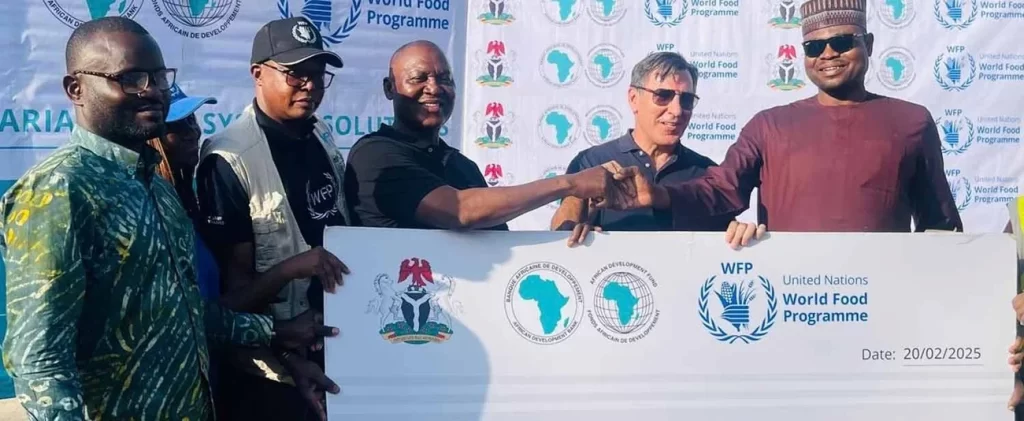Read in
In the wake of the devastating floods that hit Borno State in September 2024, the African Development Bank has contributed $1 million from its Special Relief Fund to provide emergency food assistance to flood-affected communities in northeastern Nigeria.
The support is critical, as humanitarian funding shortages coincide with rising food insecurity exacerbated by conflict, floods, and increasing poverty rates. The United Nations World Food Programme (WFP) will manage the distribution on behalf of the central government, reaching 120,000 people with essential food aid. Each household will receive 35kg of staple foods.
“The African Development Bank’s support is timely and comes as a lifeline for those struggling to feed themselves amidst rising food prices and economic turmoil,” said David Stevenson, WFP’s Country Director in Nigeria. Communities which, after years of conflict and violence, started rebuilding their lives were struck by the floods and once again displaced, meaning more and more people cannot support themselves and their families.”
The September 2024 floods have exacerbated existing challenges in the region, where years of displacement, food insecurity, and economic hardship have already taken a severe toll. The latest Cadre Harmonisé food security analysis, conducted in November 2024 across 26 states and the federal capital, projects that 33 million people in Nigeria will face food insecurity by August 2025.
“I hope that this additional funding will mitigate the suffering of vulnerable people on the brink of acute hunger at a time when more Nigerians than ever need humanitarian assistance,” said Abdul Kamara, African Development Bank Director General in Nigeria. “I commend the Federal Government of Nigeria and WFP for the continuous efforts to operate in such a challenging environment to improve the lives of Nigerian families.”
This new contribution complements AfDB’s ongoing effort to restructure activities of the Programme for Integrated Agricultural Development, Adaptation to Climate Change (PIDACC) and the Inclusive Basic Service Delivery and Livelihood Empowerment Program to avail critically needed services in Borno, Yobe, and Adamawa states.
As part of the government’s Borno State Development Plan, WFP and its partners deliver food and specialized nutrition assistance to 1 million people in Borno State each month. WFP also trains and mentors health facility staff to conduct screenings and manage acute malnutrition among women and children, promoting appropriate maternal, infant, and young child nutrition practices. The government of Nigeria is a firm supporter of WFP’s humanitarian food system solutions in Borno state.



